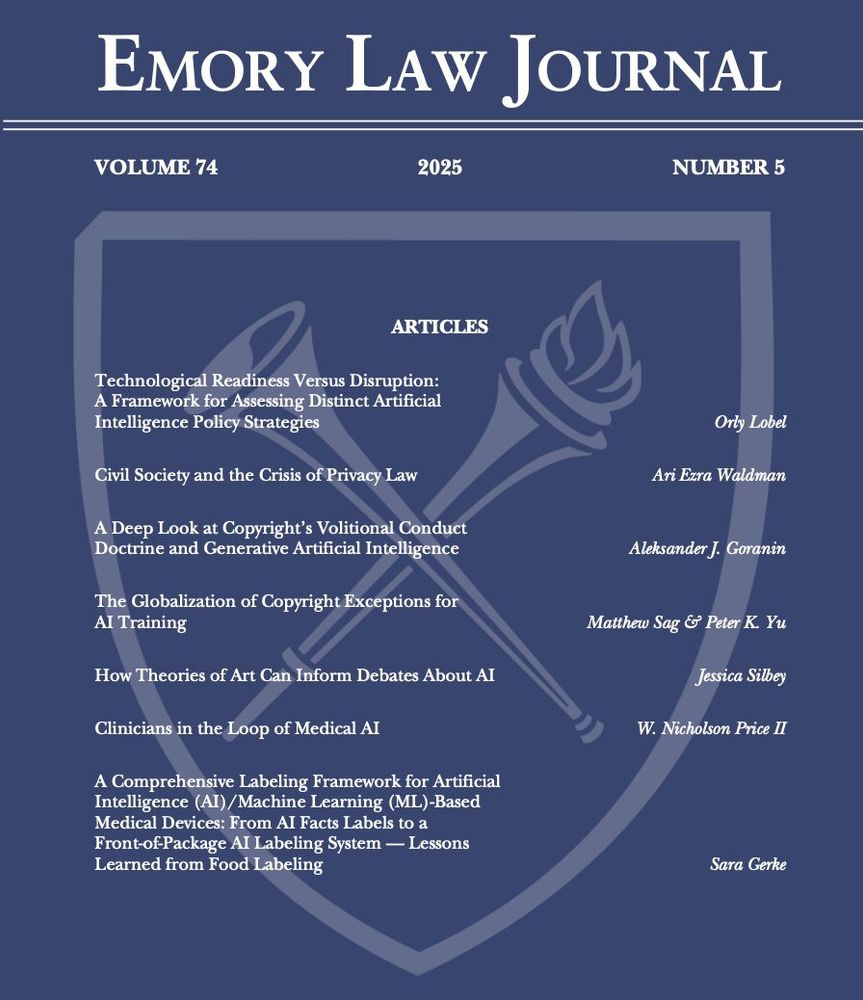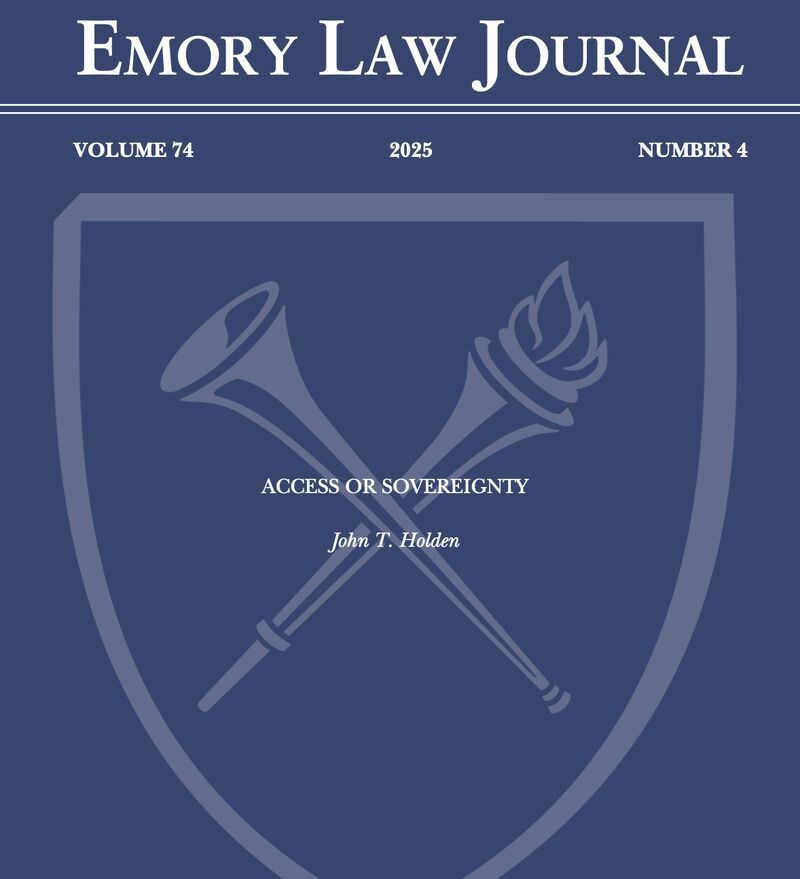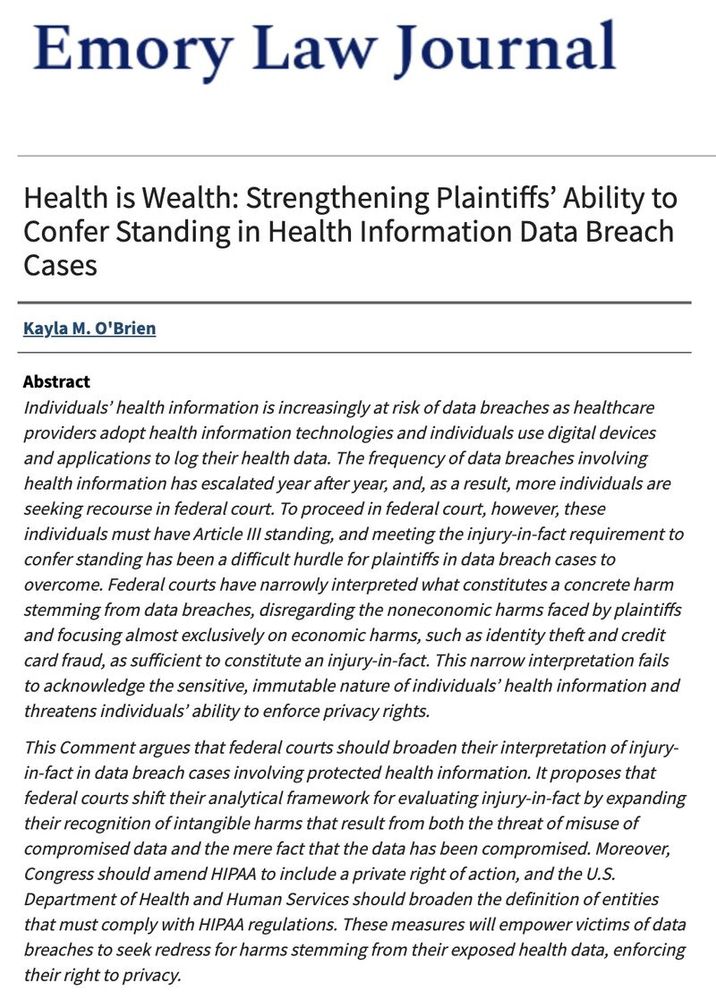Emory Law Journal
@emorylawjournal.bsky.social
670 followers
580 following
160 posts
The flagship law review of Emory Law, the student-edited Emory Law Journal publishes academic, professional, and student-authored pieces on the full range of legal subjects. https://scholarlycommons.law.emory.edu/elj/
Posts
Media
Videos
Starter Packs
Reposted by Emory Law Journal





